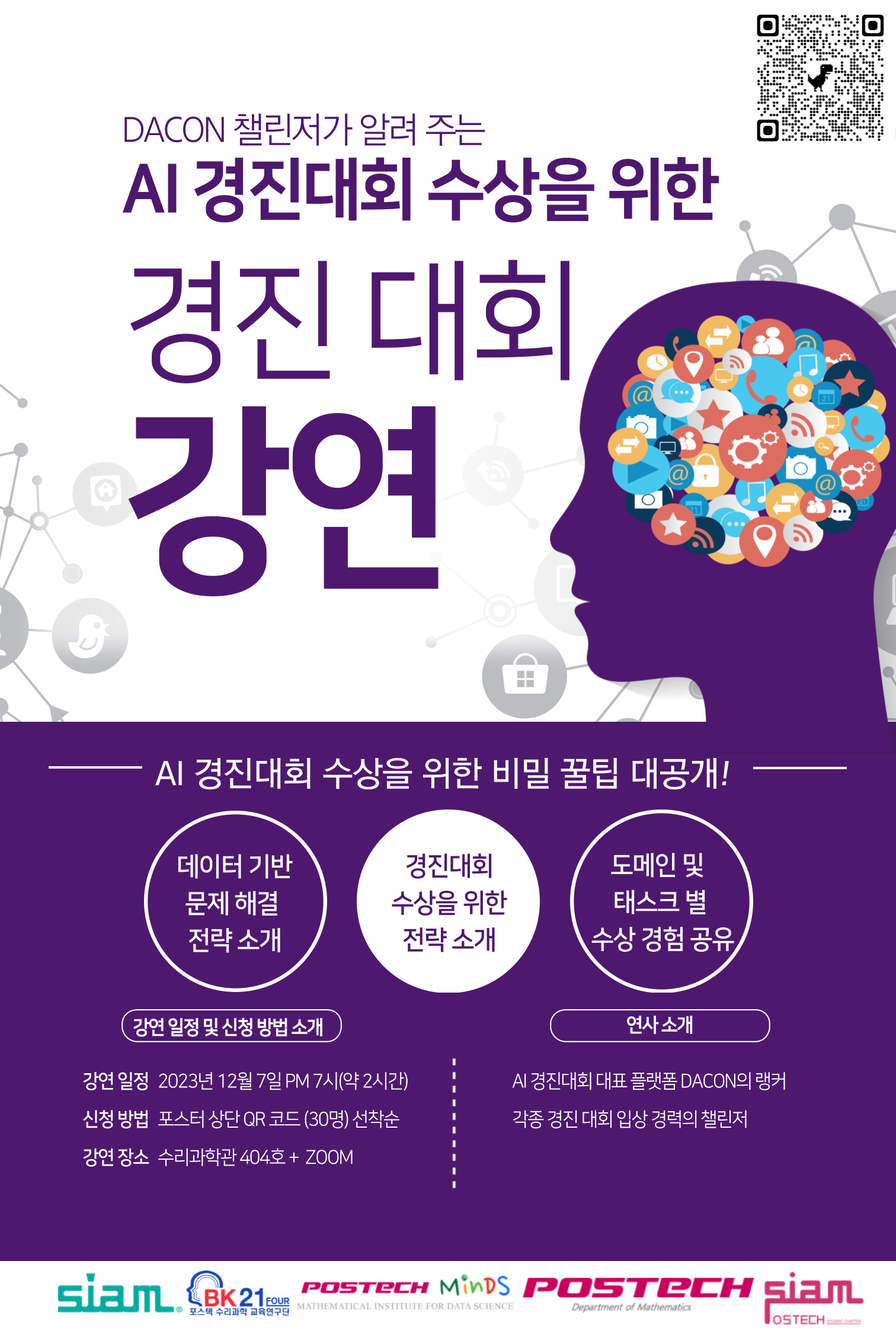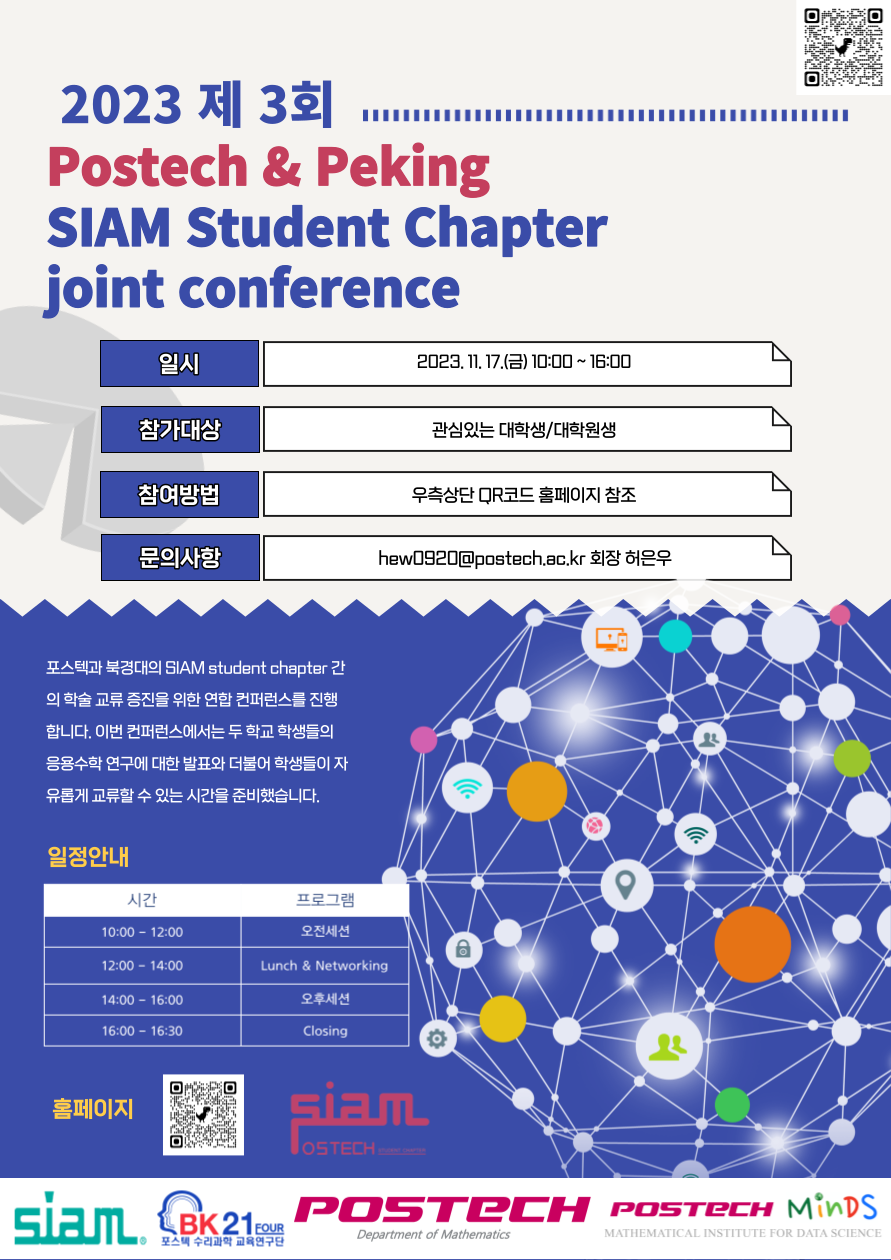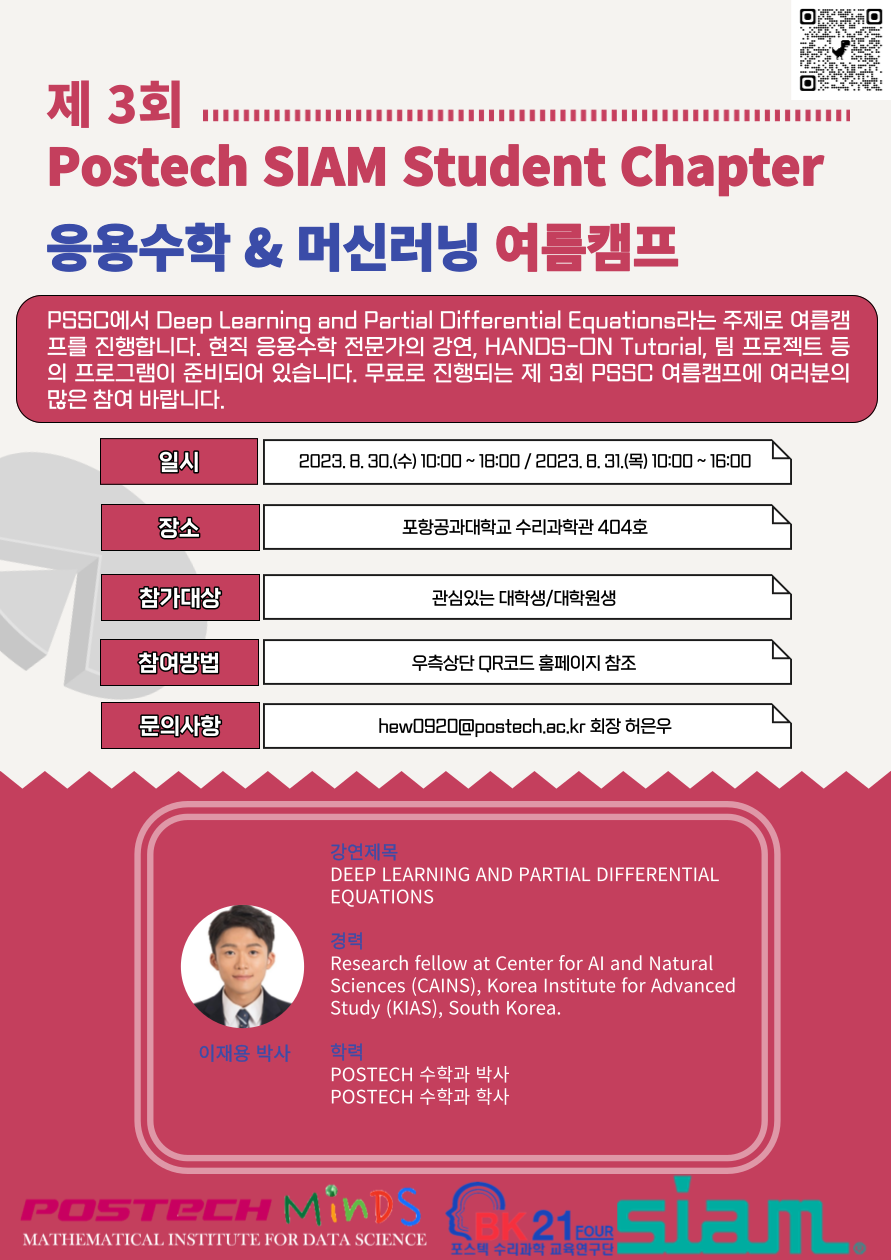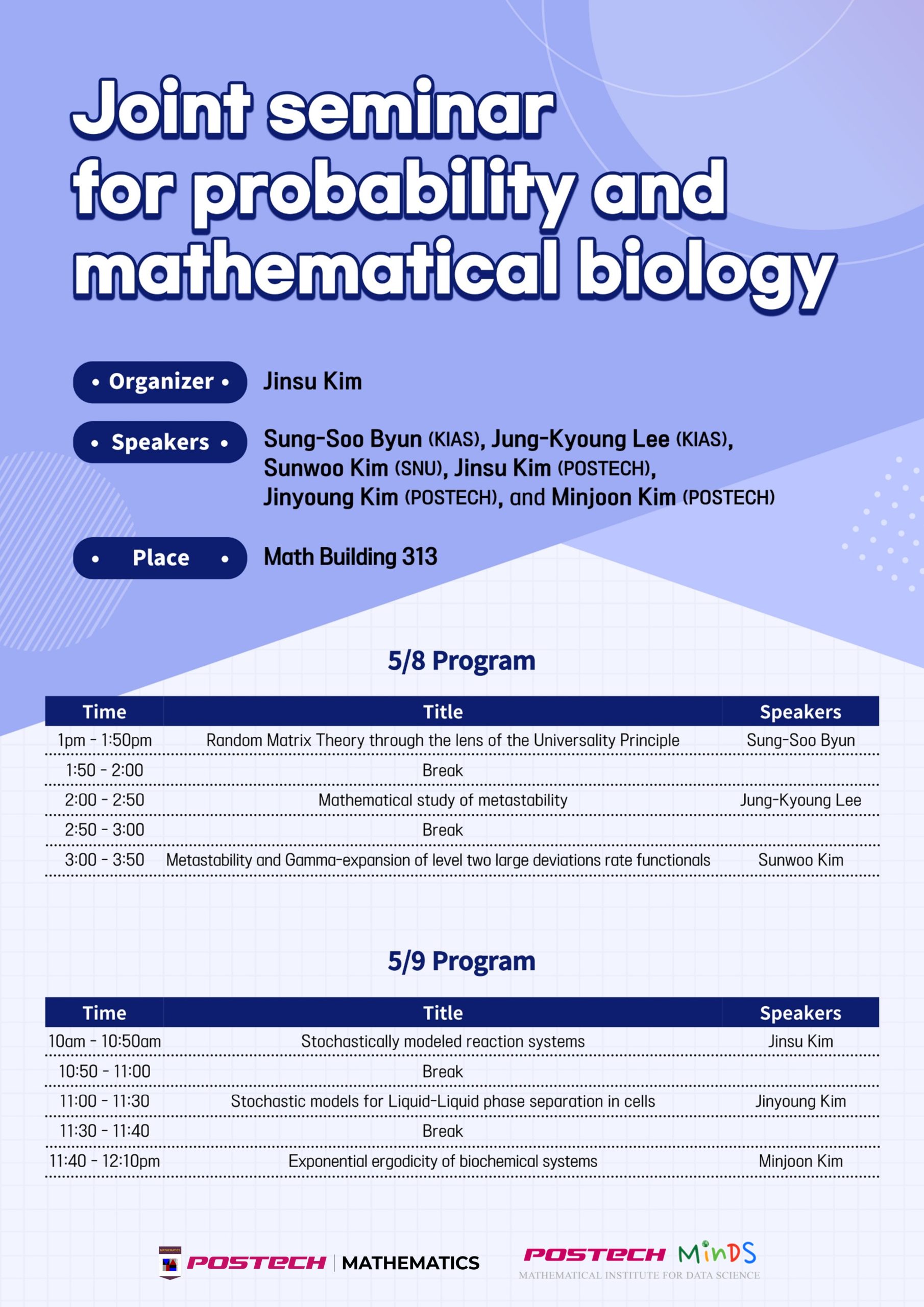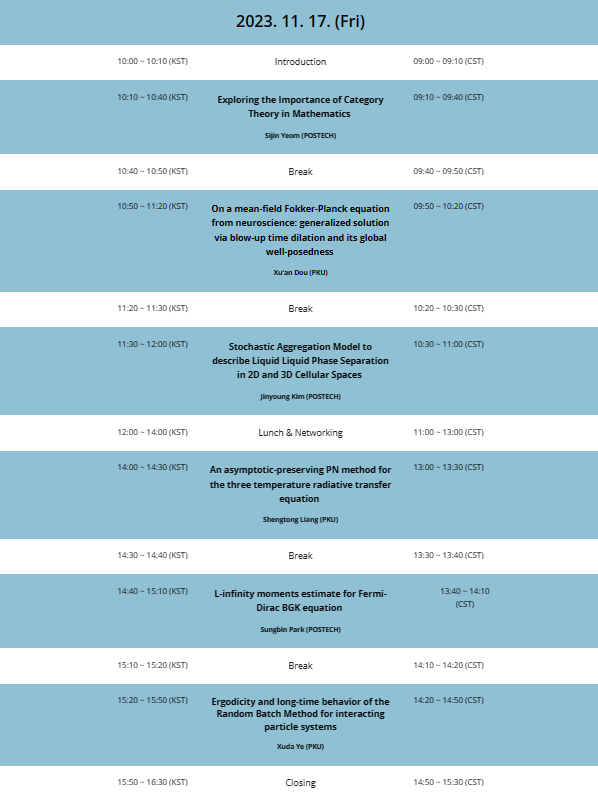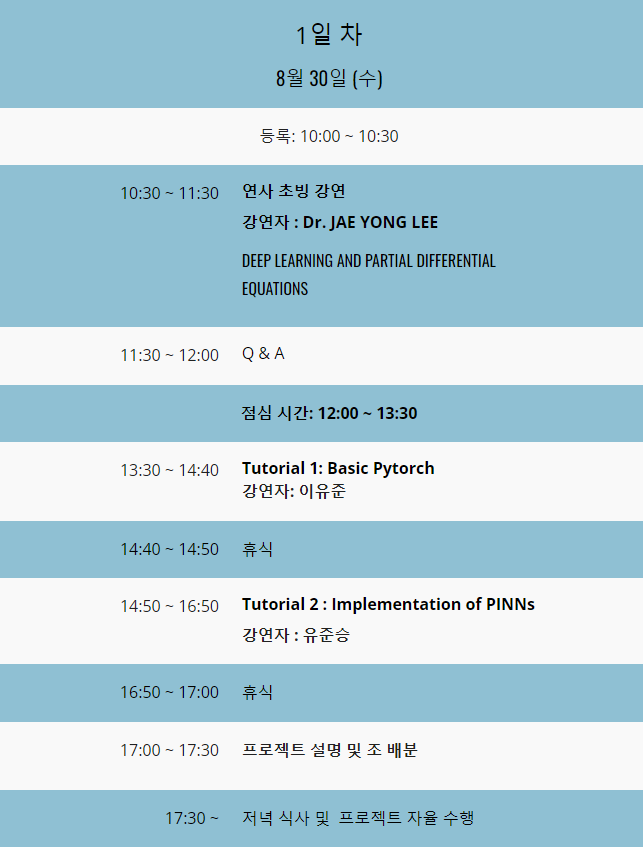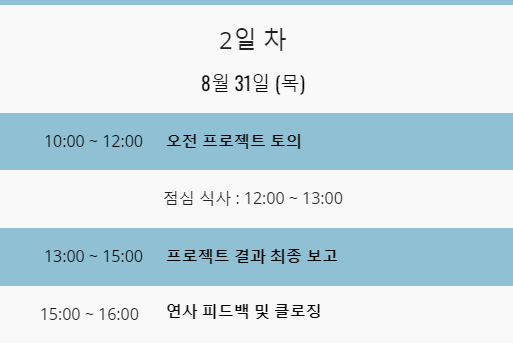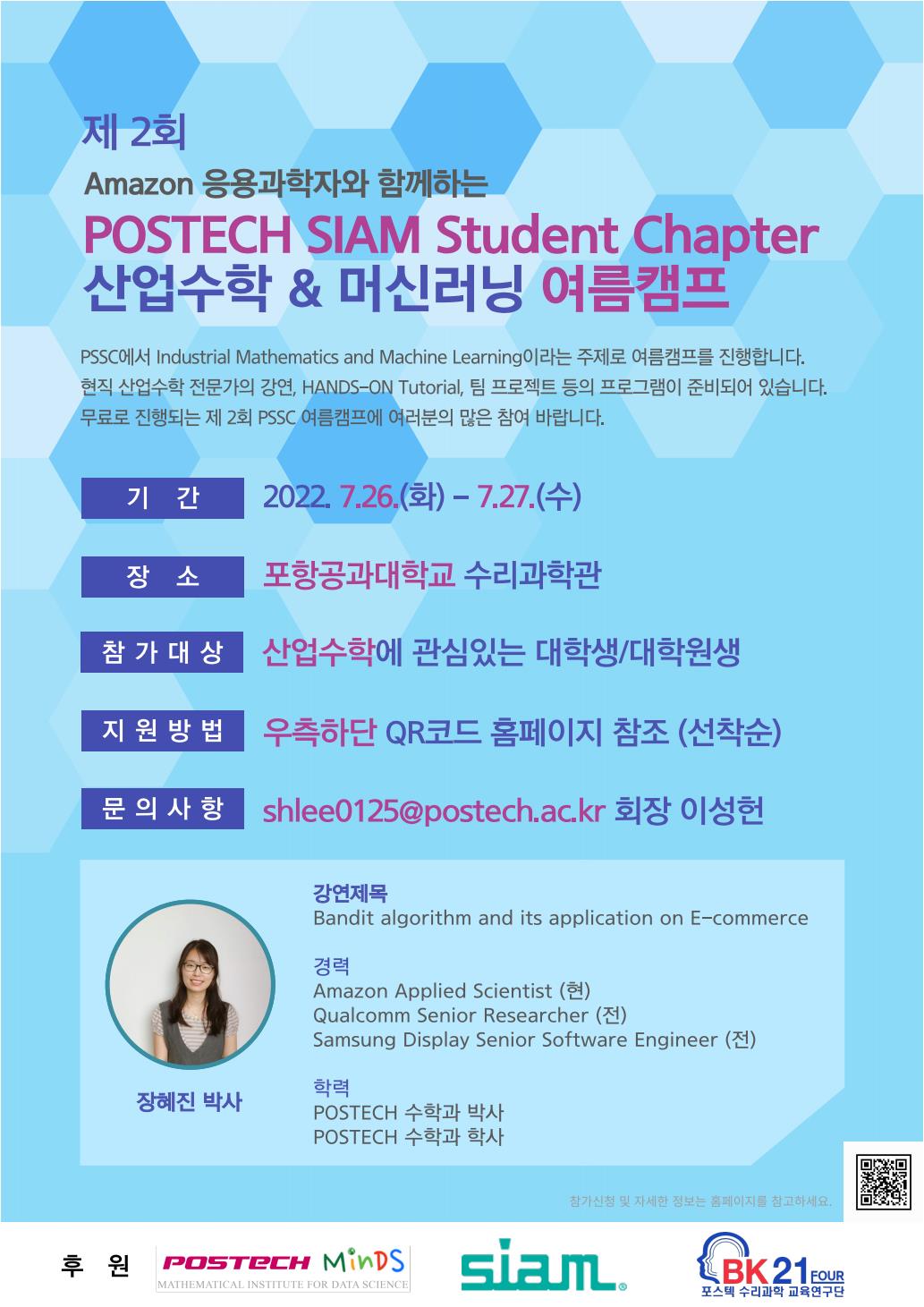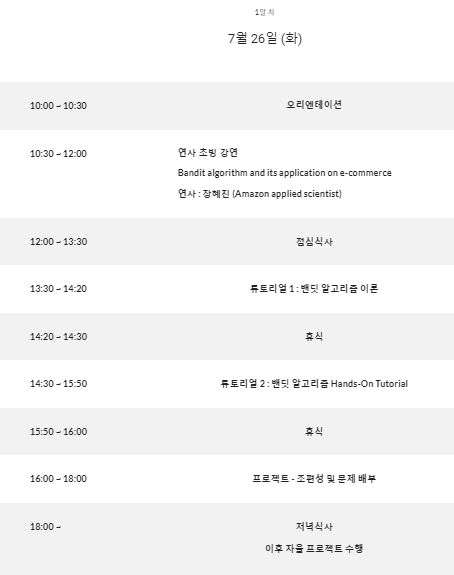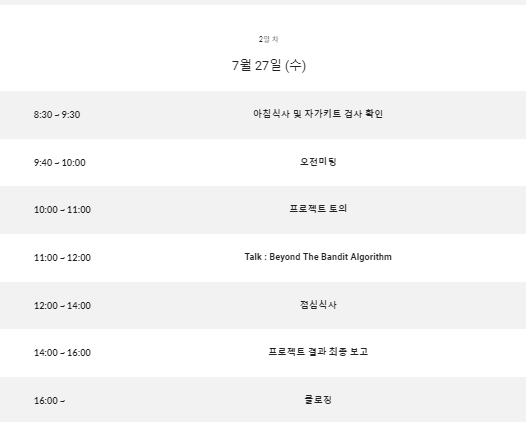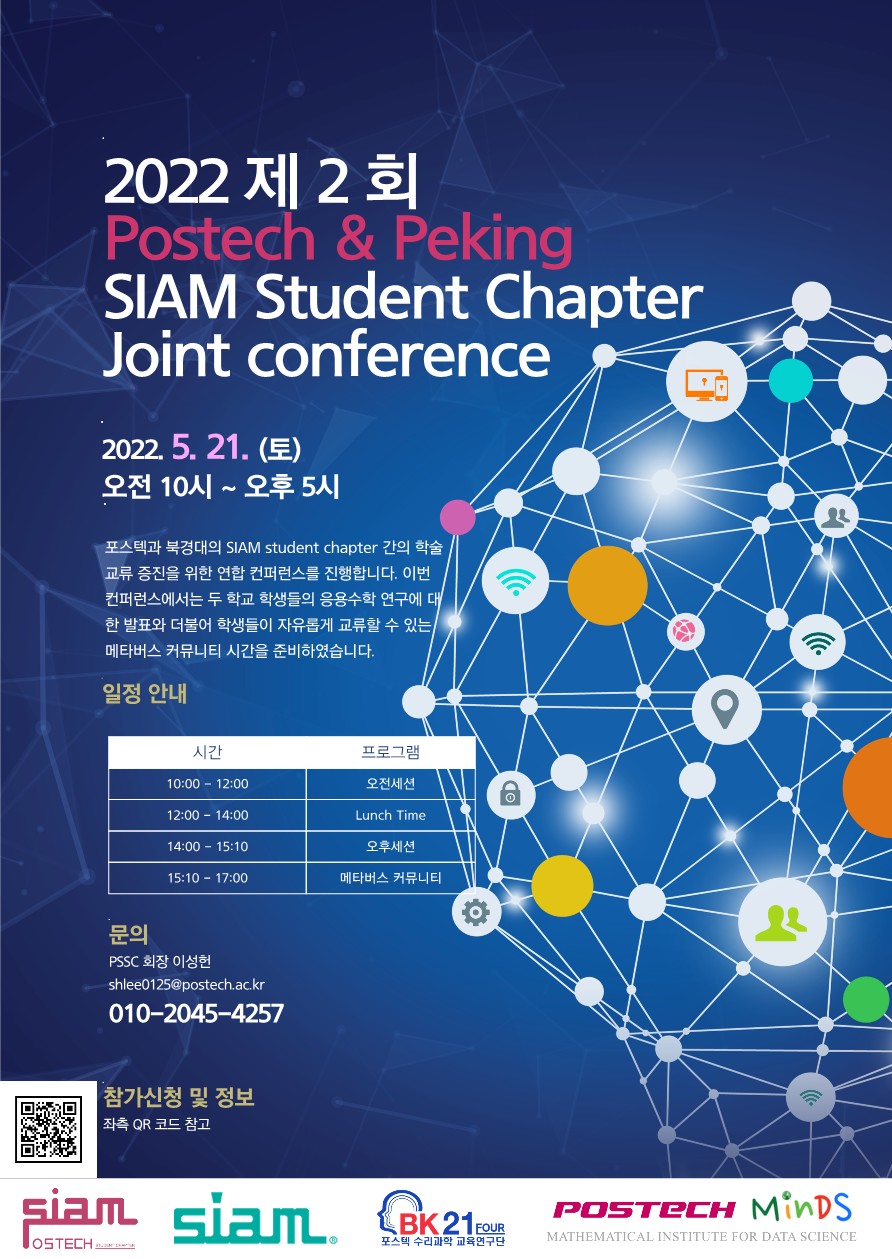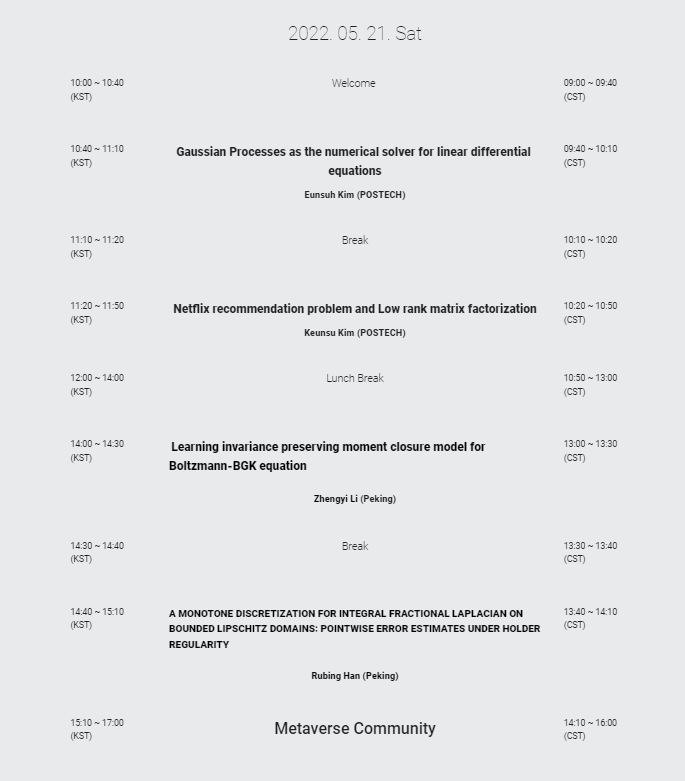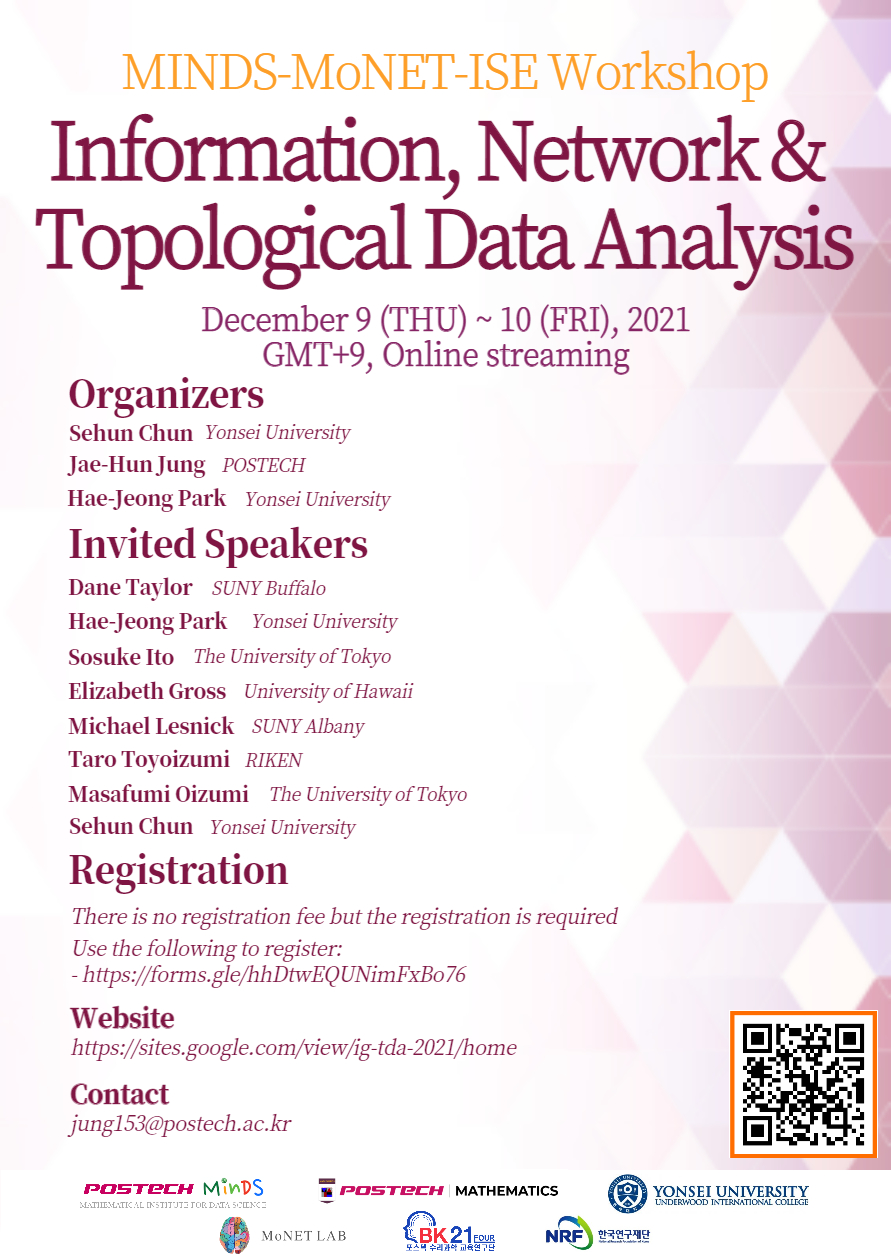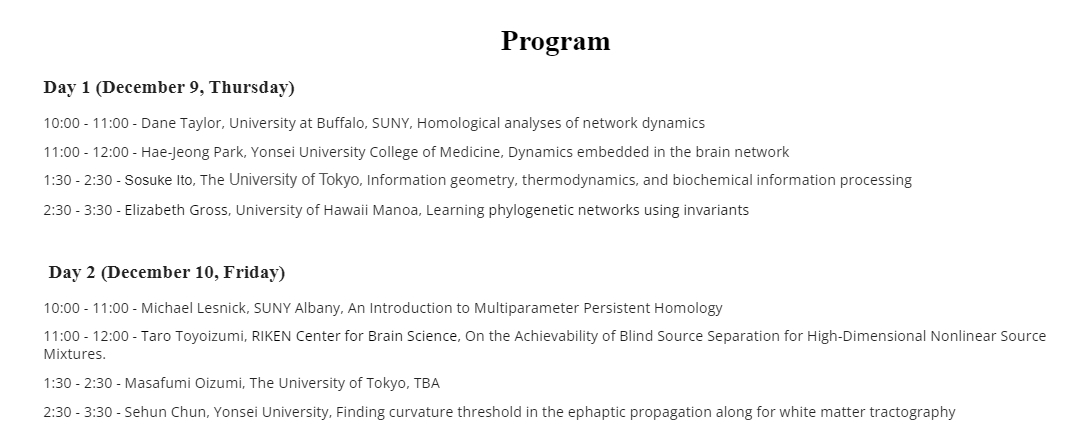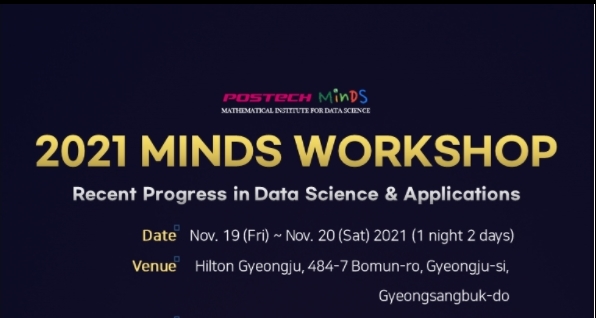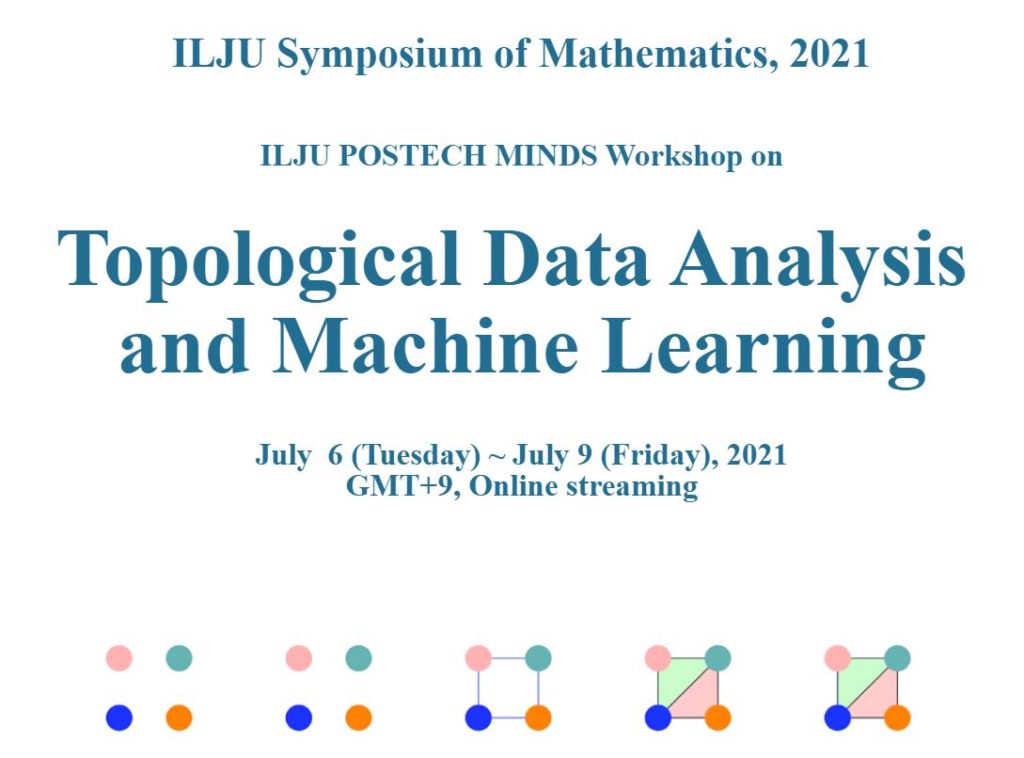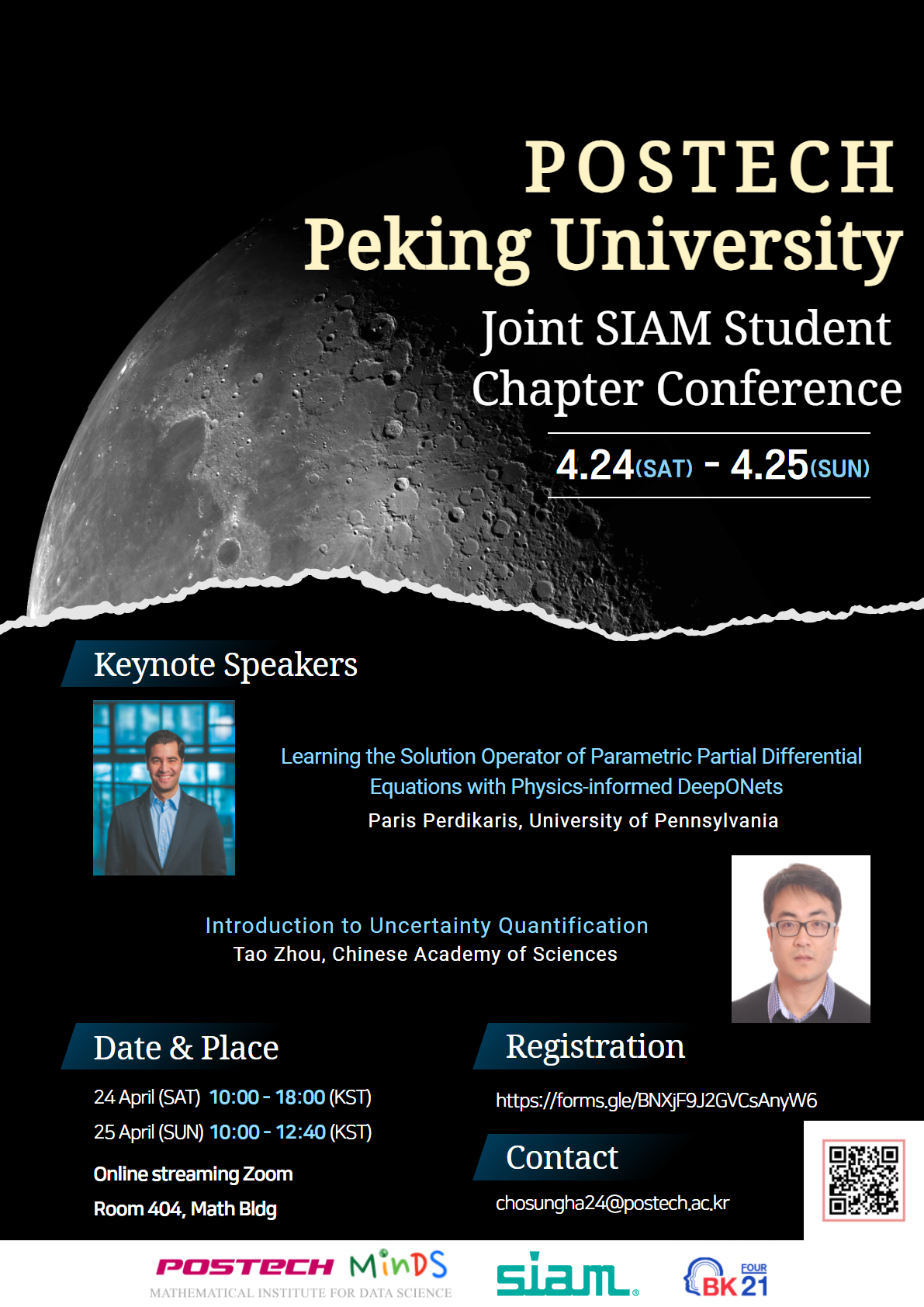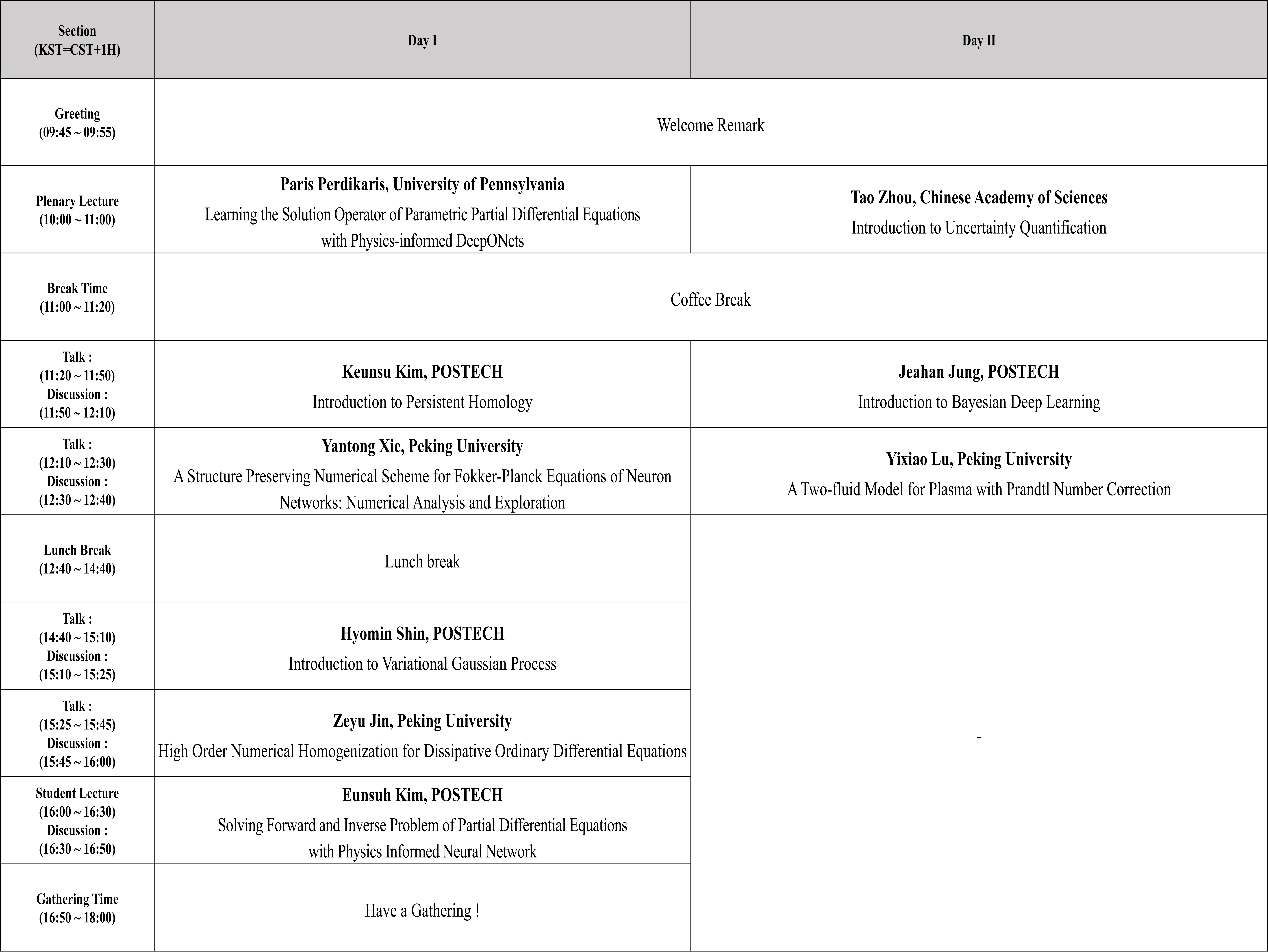Welcome to MINDS!
Established in 2020, POSTECH Mathematical Institute for Data Science (MINDS) is the community of researchers in the areas of fundamental data science, machine learning, artificial intelligence, scientific computing, and humanitarian data science. MINDS mission is to provide a platform for collaboration among researchers and to provide various opportunities for students in data science. MINDS also aims to use our data science research to serve our local and global communities pursuing humanitarian data science.
News
🌟 DACON Ranker Special Lecture: Winning Strategies for AI Competitions 🌟
2023.11.30
3nd POSTECH&Peking SIAM Student Chapter Joint Conference
2023.11.01
2023 PSSC Summer Camp
2023.10.04
[POSTECH(포항공과대학교) 수리 데이터과학 연구소 연구계약직 공고]-상시모집
2023.07.25
[POSTECH(포항공과대학교) 수리 데이터과학 연구소 연구계약직 공고]
2023.07.14
[POSTECH(포항공과대학교) 수리 데이터과학 연구소 연구교수 채용 공고]
2023.06.12
Seminar | Joint seminar for probability and mathematical biology
2023.05.02
[POSTECH(포항공과대학교) 수리 데이터과학 연구소 연구계약직 공고]
2023.02.15
Upcoming Events
Schedule
MINDS SEMINAR
MINDS Seminar Series | Ha, Joon (Howard University) - A Mathematical Structure of Type 2 Diabetes on a Slow Manifold
MINDS SEMINAR
period : 2024-06-19 ~ 2024-06-19
time : 11:00:00 ~ 12:00:00
개최 장소 : Math Bldg 404 & Online streaming (Zoom)
Topic : A Mathematical Structure of Type 2 Diabetes on a Slow Manifold
개요
| Date | 2024-06-19 ~ 2024-06-19 | Time | 11:00:00 ~ 12:00:00 |
| Speaker | Ha, Joon | Affiliation | Howard University |
| Place | Math Bldg 404 & Online streaming (Zoom) | Streaming link | ID : 688 896 1076 / PW : 54321 |
| Topic | A Mathematical Structure of Type 2 Diabetes on a Slow Manifold | ||
| Contents | Type 2 diabetes (T2D) is a progressive disease of glucose homeostasis caused by various genetic and environmental factors. The pathophysiology of T2D is a failure of insulin-secreting pancreatic beta-cells to increase levels of insulin demanded by the body as a result of aging and weight gain to maintain normal blood glucose concentration. Clinical studies have shown that glucose concentration gradually increases before frank diabetes and then sharply rises at the onset of the disease, supporting the hypothesis that there exists a threshold for diabetes progression in terms of glucose concentration. Glucose concentration per se, however, cannot be used as the threshold for progression to diabetes: For example, when glucose concentration transiently rises as a result of daily meals, transient insulin resistance due to heavy meals for a short period of time, or sudden changes in medical status, glucose concentration rises beyond the normal range but returns to baseline within a few hours or days. A better way to capture the dynamics of the sharp rise of glucose is to track the two major causative metabolic components, insulin-secretion capacity of the beta-cells (genetic factor) and insulin requirement due to obesity (environmental factor). In this talk, we aim to understand the mechanism underlying the sharp rise of glucose at the onset of diabetes and investigate the threshold behavior of diabetes and its dependence on genetic and environmental factors. Mathematical models recently developed are used for the analyses (Topp et al. 2000 JTB, Ha et al. 2016 Endo., Ha and Sherman 2020 AJP). These models incorporate secretory capacity of beta-cells to regulate beta-cell function and beta-cell mass, and insulin sensitivity to reflect body weight gain. Using these models, the following specific works will be addressed. The first part is to construct a theoretical threshold that is identified by a slow manifold that plays a role of separatrix between diabetes and non-diabetes in the physiological model. The second part is to validate the first part with a longitudinal clinical data from studies of Southwest Native Americans provided by Dr. Clifton Bogardus, NIH. Indeed, the second part is to build a data-derived slow manifold that will be used for personalized therapy. | ||
POSTECH SIAM Student Chapter
🌟 DACON Ranker Special Lecture: Winning Strategies for AI Competitions 🌟
2023 POSTECH & Peking SIAM Student Chapter Joint Conference
2023 PSSC Summer Camp
2022 PSSC Summer Camp
2022 POSTECH & Peking SIAM Student Chapter Joint Conference
MINDS-MoNET-ISE Workshop
Information, Network & Topological Data Analysis
2021 POSTECH MINDS WORKSHOP
Recent Progress in Data Science and Applications
- Nov. 19(Fri) ~ Nov. 20(Sat) 2021 (1 Night 2 Days)
- Workshop homepage
Fall 2021 Seminar Series
MINDS Seminar Series on Data Science, Machine Learning, and Scientific Computing
Every Tuesdays 05:00 PM
ILJU POSTECH MINDS Workshop on TDA and ML
July 6 ~ July 9
Registration is required (please register here)
